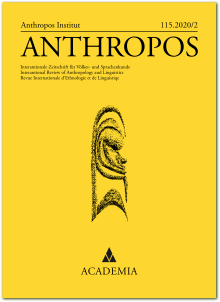Georg W. Oesterdiekhoff: Belief in Metamorphosis. Developmental Psychology as Theoretical Foundation of Cultural Anthropology
Abstract
The idea that the borders between different natural species can be easily bridged by metamorphoses was central to the ancient worldview. Humans were believed to be able to undress their human appearance and to transform into any beast whichever, or, conversely, animals were believed to appear as human beings. This belief permeated daily life and ritual practice. Moreover, the notion of metamorphosis was central to ancient metaphysics: it affected ideas regarding creation and maintenance of the cosmos, as well as birth and death of living beings. This article demonstrates that developmental psychology can explain both the universal existence of this belief in premodern societies and its disappearance in modern societies. People staying on the preoperational stage cannot avoid believing in metamorphosis because it is an inevitable part of the cognitive patterns of this stage. People staying on the concrete and formal operational stages are in fact no more able to share these ideas because the notion of the invariance of natural kinds is an inevitable part of higher psychological stages. The article points to the fundamental importance of developmental psychology for ethnological research, especially for the study of ancient worldview.
[metamorphosis, generic identity, natural kinds, developmental stages, worldview, metaphysics, sorcery]
